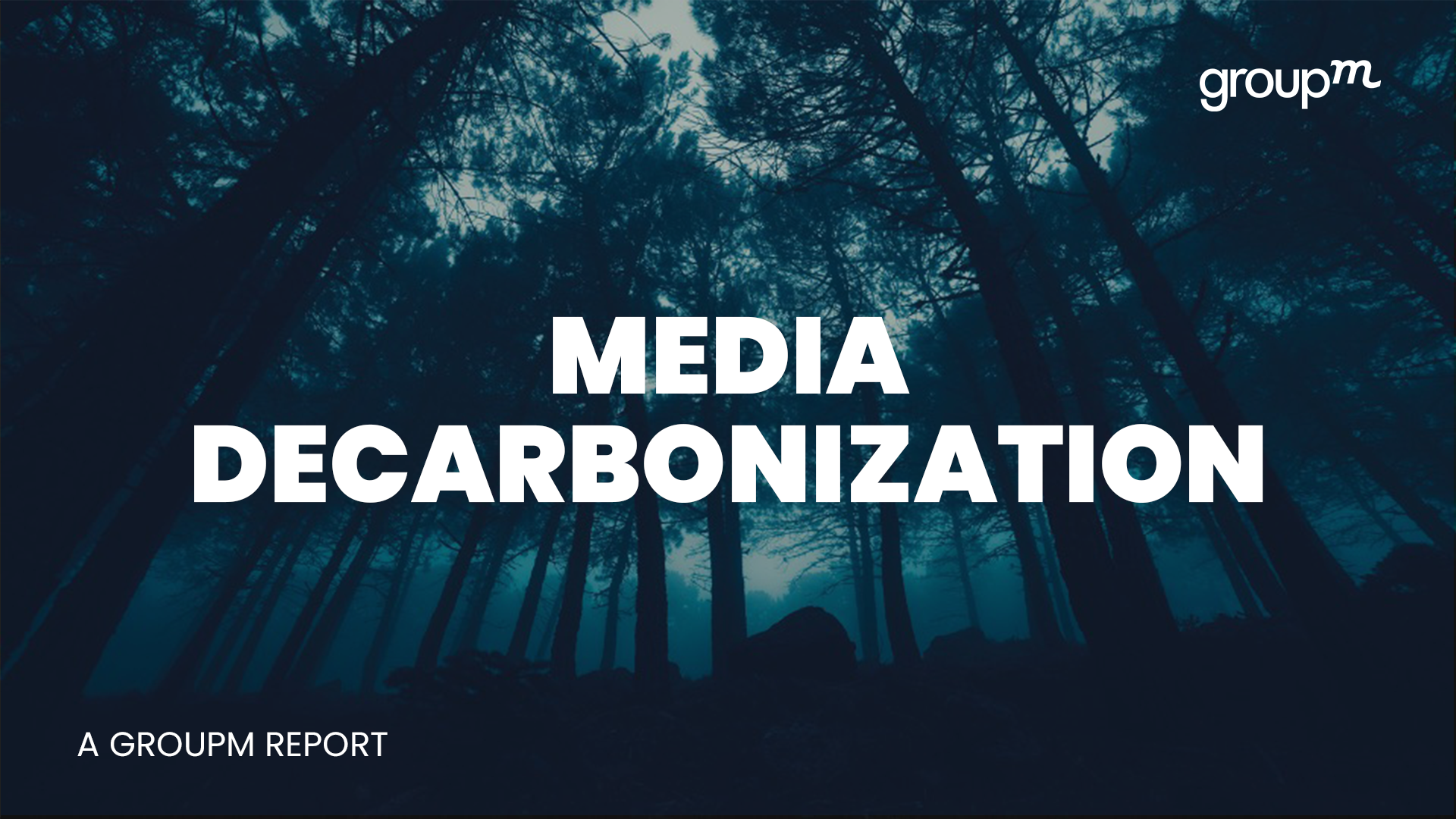GroupM Introduces Framework To Reduce Ad-Based Carbon Emissions
Measurement supports agency's goal to decarbonize media supply chain

The smarter way to stay on top of broadcasting and cable industry. Sign up below
You are now subscribed
Your newsletter sign-up was successful
Media buying giant GroupM introduced a new approach to measure carbon emissions in its own operations and along its media supply chain as part of its goal to be carbon net zero and to decarbonize its media supply chain by 2030.
Surprisingly, even digital ads can have an effect on the environment. GroupM estimates that media contributed 55% of its carbon footprint, which is equivalent to cars driving 7.3 billion miles. The majority of that footprint is the company’s chain of outside suppliers.
“Our clients want to prioritize media investment with publishers and platforms that are actively decarbonizing their media supply,” said Christian Juhl, GroupM’s Global CEO. “While we applaud the many steps taken to quantify ad-based carbon emissions in recent years, having different standards across companies, platforms and markets is delaying meaningful action. By sharing this global framework, we hope to begin aligning our industry behind a consistent set of standards that will create clear goals and incentives for rapidly decarbonizing the media supply chain.”
To develop its decarbonization framework, GroupM worked with independent specialists in carbon measurement and incorporated input from clients, industry partners, third parties and experts across GroupM and parent company WPP.
In addition to providing standards for measuring carbon emissions, the framework also outlines steps advertisers can take immediately to accelerate their decarbonization efforts. These include buying fewer but higher-quality ads, cutting the complexity of the supply chain by reducing intermediaries, and buying low-carbon media products.
GroupM will be moving from measuring the carbon emissions of categories of ads to being able to determine the carbon footprint of individual vendors.
GroupM wants to share its framework and quickie move toward an industry-wide approach.
The smarter way to stay on top of broadcasting and cable industry. Sign up below
“If we all continue to work on this problem independently, we're going to have a very limited impact on carbon emission reductions,” Oliver Joice, global chief transformation officer at GroupM agency Mindshare, said. “This framework and the research behind it is our attempt to consolidate the industry around a unified vision of decarbonization, starting with defining consistent parameters around boundaries, then agreeing on what data is required and coming together on a calculation methodology. It took us 10 to 15 years to get meaningful progress on privacy, and five to eight years to get meaningful progress on harmful content. We simply do not have that much time to align around what carbon measurement and carbon reduction look like.” ■
Jon has been business editor of Broadcasting+Cable since 2010. He focuses on revenue-generating activities, including advertising and distribution, as well as executive intrigue and merger and acquisition activity. Just about any story is fair game, if a dollar sign can make its way into the article. Before B+C, Jon covered the industry for TVWeek, Cable World, Electronic Media, Advertising Age and The New York Post. A native New Yorker, Jon is hiding in plain sight in the suburbs of Chicago.

